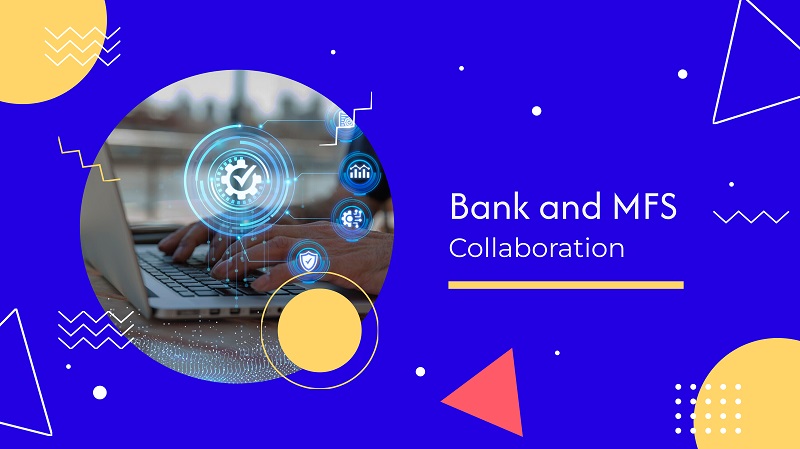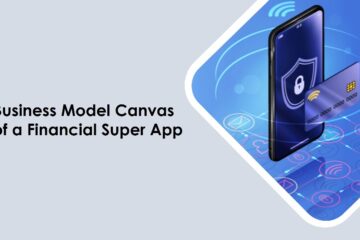In Bangladesh, Mobile Financial Services (MFS) have transformed the financial landscape by offering millions of people access to basic financial services, especially those in underserved and rural areas. With the rapid adoption of mobile phones and the rise of digital payments, MFS platforms like bKash, Nagad, and upay have become essential tools for money transfers, bill payments, merchant payment and micro-loans. Over last couple of years, the collaboration between MFS providers and traditional banks has taken the country’s digital financial ecosystem to the next level.
This partnership between banks and MFS is playing a crucial role in driving financial inclusion, enabling customers to access a wider range of financial products and services beyond basic transactions. By leveraging the strengths of both sectors, these collaborations are reshaping Bangladesh’s financial services landscape, providing innovative solutions and enhancing access to credit, savings, and insurance for both urban and rural populations.
Mobile Financial Services (MFS) in Bangladesh
Mobile Financial Services (MFS) platforms in Bangladesh have revolutionized the way people access financial services, particularly in rural areas where traditional banks have limited reach. MFS platforms offer convenient, affordable, and real-time services, allowing users to:
- Domestic remittance (send and receive money)
- Pay utility bills, Govt. service fees and charges
- Payments to merchants
- Recharge mobile balances
- Receive Govt. incentives and social safety net payment
Leading platforms like bKash (backed by BRAC Bank) and Nagad (offered by the Bangladesh Postal Service) dominate the market. As of 2023, more than 110 million MFS accounts have been registered in Bangladesh, with daily transactions exceeding BDT 3,000 crore (USD 354 million).
The customer segments dealt by MFS and bank are different form each other. If we look into the customer segmentation of financial service users, there are distinct set of customers unreachable for both MFS and Bank. But certainly, a large segment of fanatical customers remain untapped which can be brought under financial inclusion through MFS-Bank collaboration.

Despite MFS’s rapid growth, many users still have limited or no access to more sophisticated financial services like savings accounts, loans and investments. By regulation, MFS providers cannot accept deposit or lend money to the customers. This regulatory aspect is the point of disruption, where bank-MFS collaborations play a critical role to broaden financial inclusion in Bangladesh.
The Rationale for MFS and Bank Collaboration
MFS platforms are excellent at facilitating instant financial transactions, but banks offer a wider array of products such as credit facilities, savings accounts, and investment options. Collaboration between these two sectors allows for the development of a more comprehensive financial ecosystem that can meet the diverse needs of customers, especially those who are traditionally excluded from the formal banking sector. The following factors act as key drivers of MFS and Bank collaboration:
- Extending Banking Services to the Unbanked: Banks are leveraging MFS platforms to offer bank accounts and credit services to individuals who may not have access to physical bank branches.
- Access to Formal Financial Services: MFS users can access more advanced banking services such as loans, insurance, and savings, helping them transition from basic mobile money services to a fully integrated financial system.
- Technology Integration: Collaborations between banks and MFS providers allow for seamless integration of digital banking and mobile money platforms, offering a one-stop solution for customers to manage their finances.
The rational to MFS-Bank collaboration and its potential outcomes can be illustrate using the following diagram –

Key Examples of MFS and Bank Collaboration in Bangladesh
Though in very limited scale as of now, MFS and bank collaboration examples are already in Bangladesh. However, in most cases the collaboration are basic transactional facilities. But good things is that in recent years banks are more open to collaborate with MFS provides to reach wider section of customer. Few key examples of MFS-Bank collaboration in Bangladesh is outlined below for the readers –
- Money Transfer: The basic service of the collaboration is integration between bank internet banking and MFS. Such collaboration facilitates user to transfer money from bank account to MFS wallet and vice-versa. All MFS operators enjoy the service in Bangladesh now.
- ATM Cash Out: MFS providers are partnering banks to facilitate cash out from MFS wallet using bank ATMs. The integration mainly giving MFS users edge of cash out cost. However, such facilities are limited urban and semi urban areas only. Bank ATMs reach is not widened to rural areas. Nagad is yet to enable this service for its users.
- Inward Remittance: Bank partnering with MFS for disbursement of inward remittance directly to customer MFS wallet. As per latest guideline from central bank of Bangladesh, now MFS providers can directly integrate with money transfer organizations (MTOs). However, the currency handling and fund management remain bank responsibility and MFS act as a channel for remittance disbursement.
- bKash Savings: In collaboration with banks bKash launch customized saving products for MFS users first time in Bangladesh. Customer can open weekly, monthly and Islamic DPS from app. For regular DPS bKash partnered with BRAC Bank, IDLC Finance, Dhaka Bank and Mutual Trust Bank. And for Islamic DPS it partnered with City Bank.
- bKash Loan and BNPL: The City Bank introduce instant digital loan without requiring any paperwork in collaboration with bKash. With certain set of eligibility criteria, bKash coatomers can apply for the loan. Furthermore, this MFS-Bank collaboration also bring Buy Now Pay Later (BNPL) service for MFS users first time in Bangladesh.
- upay Co-Branded Prepaid Card: One of the major examples of MFS-Bank collaboration is upay Co-Branded Prepaid Card. Such product is first time in market and unique of its kind. While bank is the card issuer, upay provides application, load and logistic support for the customer. Customer can apply for the prepaid card digitally from upay app without any physical document and/or bank branch visit.
The Future of MFS and Bank Collaboration in Bangladesh
The future of MFS and bank collaboration in Bangladesh looks promising, with several trends likely to shape its evolution:
1. Expansion of Digital Loan Products
As alternative credit scoring models become more refined, banks will continue to partner with MFS providers to offer digital loan products tailored to specific customer segments. This will be particularly beneficial for small businesses, farmers, and micro-entrepreneurs who need access to quick and flexible financing.
2. Introduction of More Digital Financial Products
We are likely to see the introduction of more sophisticated financial products, such as digital insurance, investment platforms, and wealth management services, through partnerships between banks and MFS providers. This will allow users to manage their entire financial portfolio via mobile apps, making financial management more accessible.
Concluding Remarks
The collaboration between Mobile Financial Services (MFS) providers and traditional banks in Bangladesh is reshaping the financial landscape by promoting financial inclusion, expanding access to credit and savings, and offering more secure and innovative financial services to a broader audience. As technology and regulatory frameworks continue to evolve, this partnership will become increasingly critical in driving the next phase of Bangladesh’s digital financial transformation. With banks and MFS platforms working hand-in-hand, the future of inclusive finance looks bright, fostering economic growth and financial empowerment for millions across the country.










